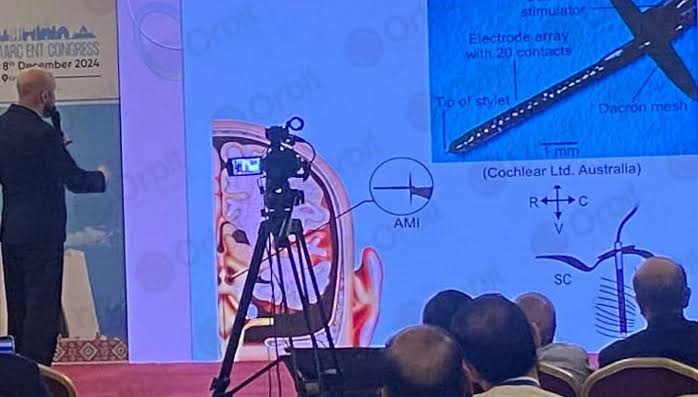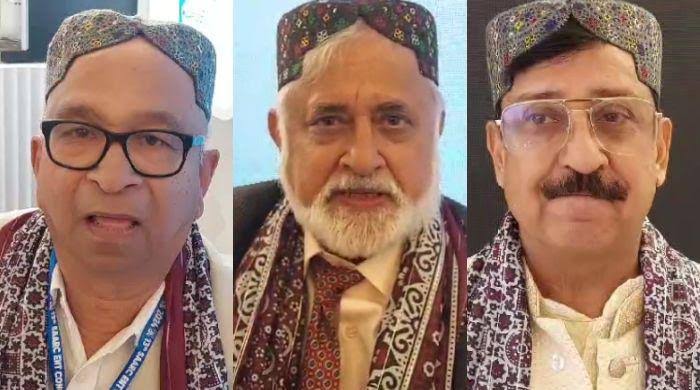Indian healthcare professionals attending the 13th Saarc ENT Congress in Karachi on Friday praised Pakistan’s exceptional hospitality and the warm reception they received during their visit. They described Pakistan as equally safe as any Indian city and advocated for increased collaboration between healthcare experts from both nations, emphasizing that such cooperation could benefit the region beyond political boundaries.
A Personal Connection to Pakistan’s Warmth
Dr. KP Morwani, a renowned ENT surgeon from Mumbai, shared his admiration for Pakistan’s hospitality. “No nation can match Pakistanis in hospitality. They respect and care for their guests in a way that leaves us feeling overwhelmed,” he said. Dr. Morwani, who hails from a family that migrated from Pakistan during Partition, was visiting Pakistan for the second time. He noted the inconvenience of not having direct flights between Mumbai and Karachi, calling for easier travel to facilitate better collaboration between healthcare professionals from both countries.
Strengthening Ties Through Collaboration
Dr. MK Taneja, a senior ENT specialist from Uttar Pradesh, echoed these sentiments. Having visited Pakistan twice, he expressed his admiration for the warmth he experienced at the Pakistani High Commission and Karachi airport, reflecting the country’s cultural values.
The Power of Cross-Border Cooperation
The Indian delegates stressed that working together would improve patient care and enhance skills on both sides. “Pakistani surgeons excel in certain areas, and Indian doctors in others. By collaborating, we can learn from each other and provide better outcomes for our patients,” Dr. Morwani said.
Saarc ENT Congress: A Hub for Regional Collaboration
The Saarc ENT Congress, hosted by the Society of Otorhinolaryngologists of Pakistan, has attracted over 30 international delegates from South Asia and beyond to discuss advancements in ENT and head and neck surgery. Among them are five Indian delegates, including specialists practicing in Gulf countries.
Exchange of Knowledge and Addressing Regional Health Challenges
Prof. Sameer Qureshi, the organizing secretary, emphasized the congress’s significance for regional collaboration. “This event offers an excellent platform for specialists to exchange knowledge and address common health challenges in the Saarc region,” he said.
Workshops and Discussions on Cutting-Edge Medical Practices
Workshops covering audiology, cochlear implants, temporal bone dissection, and head and neck surgeries were held at leading medical institutions such as Indus Hospital, Dow International Medical College, and Jinnah Postgraduate Medical Centre. Discussions included advancements in minimally invasive surgical techniques, managing hearing loss, and treating sinus diseases.
A World-Class Event Celebrating Regional Expertise
Prof. Tariq Rafi, the guest of honor, praised Pakistan for hosting a world-class event. “This congress highlights the expertise of specialists from Pakistan and the region and fosters partnerships that will contribute to healthcare advancements,” he remarked.
Bridging Regional Divides Through Healthcare Collaboration
Prof. Nar Maya Thapa from Nepal, attending Pakistan for the first time as the conference president, lauded the scientific rigor of the event and the hospitality shown to delegates. “This congress demonstrates how countries in the region can unite for shared healthcare goals,” he said.
Tackling Regional Health Issues Through Joint Efforts
Dr. GM Arif, a senior academic at the event, emphasized the need for collaboration to tackle issues such as hearing impairment and oral cancer, which are common in the region.
Addressing Broader Healthcare Challenges
The congress also aimed to address broader healthcare challenges, such as equitable resource distribution, disease management guidelines, and improving surgical outcomes. Delegates emphasized that such events could help build trust and strengthen relationships between South Asian nations.
Looking Ahead: Optimism for Future Cross-Border Collaboration
As the congress continues until December 10, participants expressed optimism about the future of cross-border collaboration. “Events like these not only advance medical science but also promote peace and understanding. Healthcare is a universal language that can bridge divides,” said Prof. Qaiser Sajjad, a prominent Pakistani ENT surgeon.


